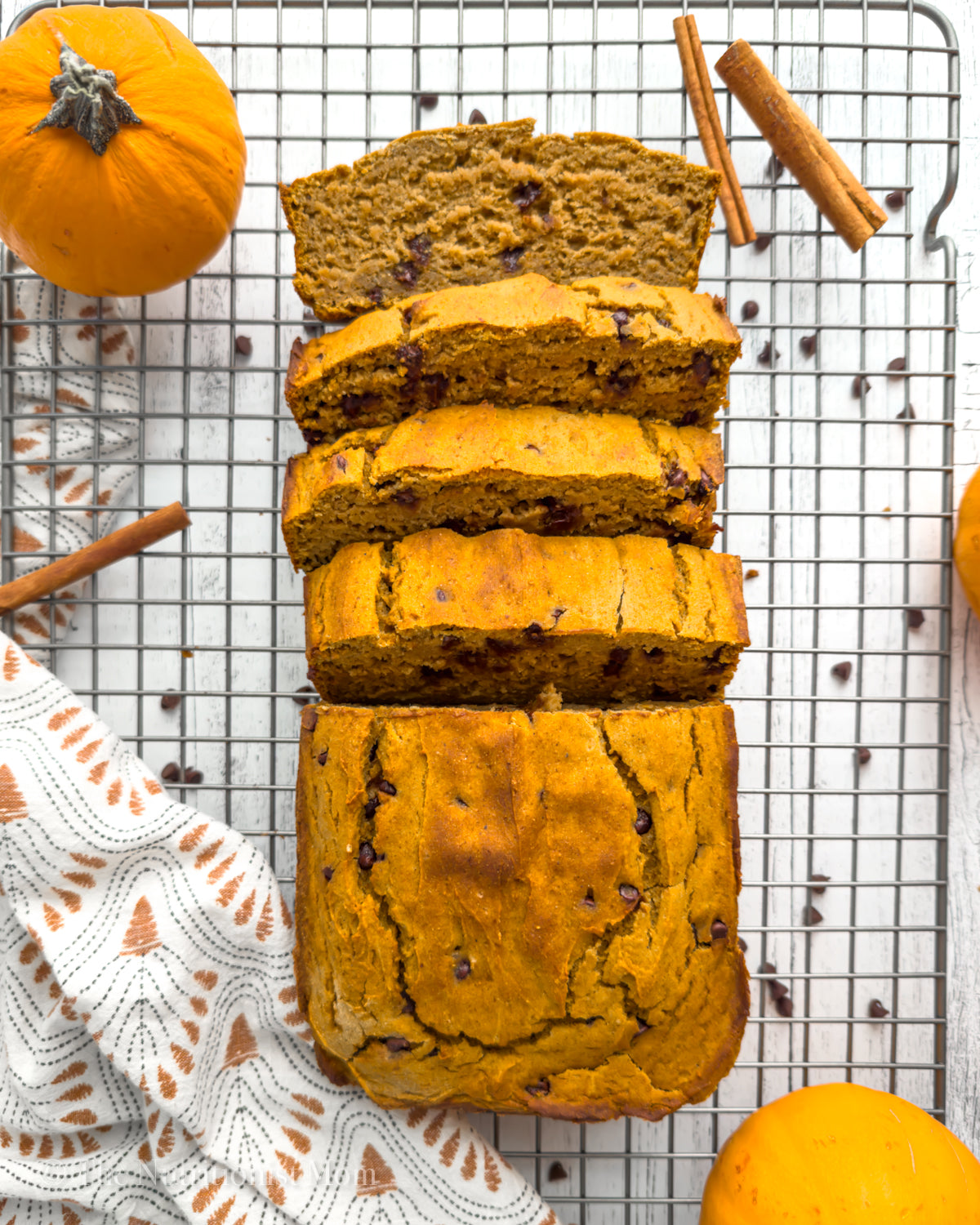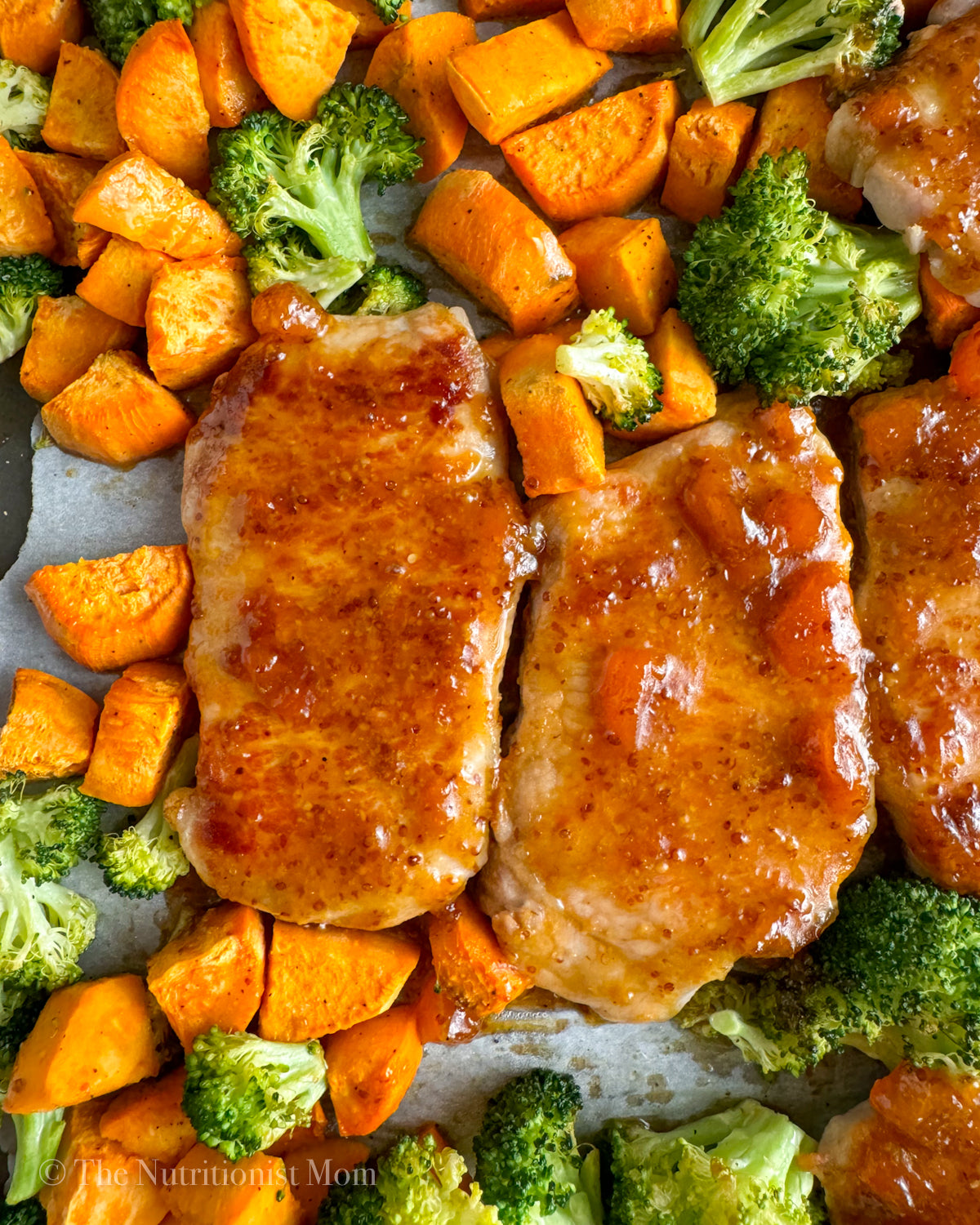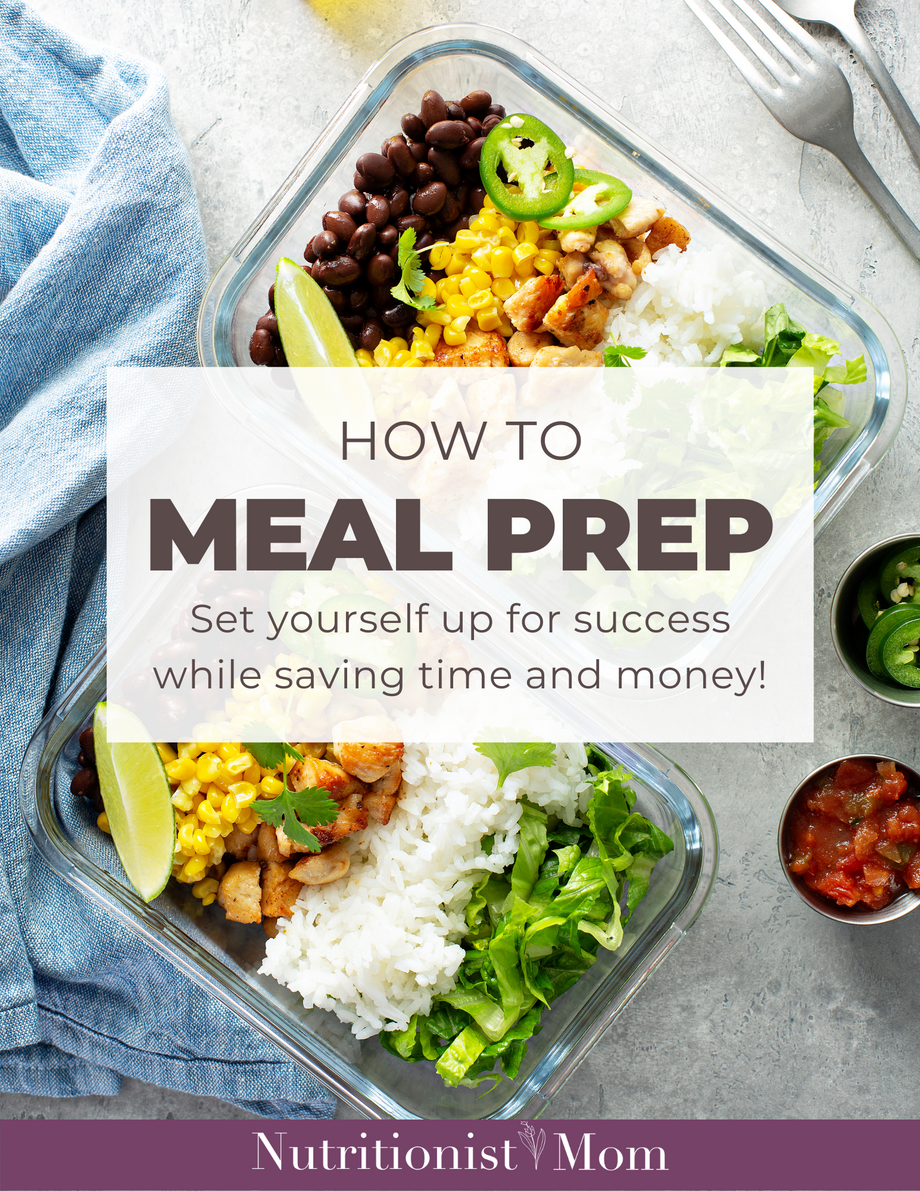10 TIPS TO END BINGE EATING

Binge Eating Disorder (BED) is the most common eating disorder in the United States!1 3 out of 10 people trying to lose weight show signs of BED.2 In fact, more people struggle with BED than anorexia or bulimia combined!1,2
Binge Eating Disorder (BED) is consuming significantly more than a normal person would “overeat” at one sitting, eating until extremely uncomfortable, feeling unable to stop, feeling guilty or disgusted with the amount eaten, possibly attempting to purge or exercise as damage control. Binge eating is also typically done alone due embarrassment and shame (been there!)
I don’t talk about this often, because I haven’t struggled with binge eating for years now. But after my first baby, I was in very dark place where I hated how I looked and who I’d become. That self-loathing would manifest as eating a horrendous amount of food. One girl I spoke to with the same issue said she hated herself so much she wanted to see how much she could eat to kill herself. This is a serious issue!

Others report different reasons for binge eating: anxiety, stress, feeling unloved, depression, past abuse, traumatic events or loss, and food addiction, to name the most common.
I know all too well how helpless and trapped you feel. You vow to never binge again, get everything out of the house that you would possibly want to binge on… then the opportunity presents itself and you lose control. There were times I would binge up to 5,000kcal in a single day, all while wanting to stop and being so angry at myself for not being able to.
It took me an entire year to overcome BED! What I learned was that binge eating is not a food issue, it’s a mind issue. It’s not the chips or pizza or cake that “makes” you binge, it’s an underlying belief (or beliefs) that you’ve reinforced in your mind.
For example:
“I am such a failure, I might as well embrace it.”
“I am so fat, and it’s because I can’t control my eating.”
“Everything is falling apart and I have no control.”
“Every time this food is in the house, I can’t stop eating it.”
“This is a trigger food, so if I eat it all now I won’t have the temptation tomorrow.”
“Everything is hopeless, I might as well eat myself to death.”
In order to overcome binge eating, the first step is to…
Address and counter destructive beliefs that trigger bingeing!
Whatever your underlying “beliefs” are… whatever crosses your mind when you start a binge… that is the issue, not the food. Trust me, I tried flexible dieting, I tried intuitive eating, I tried cutting out every food I ever binged on, and none of it worked.
When I stopped logging my food in MyFitnessPal (diet tracking app), I actually binged even harder because there was no accountability! It depends though – some report it helpful to stop tracking.
Weirdly enough, confiding in others who struggled only made it worse! We ended up enabling and feeding off each other. It’s different if the other person can act more as a mentor and healthy example.

My real breakthrough happened when I addressed my destructive beliefs and negative thought life. Thoughts like “you’re so fat and ugly,” “you have no self control,” “you’re never going to make progress” dominated my mind. I realized that these beliefs were not only making me miserable, but my lack of self worth was negatively affecting my husband and potentially my daughter too. My family deserved a happy wife and mother. And, hard as it was to believe, I deserved happiness! Hard to grasp at the time since I felt so unworthy.
Here’s the thing: you not only deserve happiness… YOU are in control of your happiness. You have the ability to choose the life you want to live. I personally decided I was no longer the person who wallowed in self loathing and self destruction! Which brings me to my next tip…
Choose happiness and reject thoughts and choices that don’t make you happy.
One morning in the pantry, about to start a binge, I paused then declared aloud to myself: “I am not this person anymore!” I realized I had the power to choose happiness and balance, I had self control, I was strong and worthy of love, and I needed to honor and nourish the body God gave me… not abuse and hate it.
From that moment on, I looked for things I liked about myself, rather than focusing on all the things I disliked. I stopped trying to weigh less, and started pursuing overall health and balance instead.
Please, if you’re trying to overcome an eating disorder, it’s vital that you:
Temporarily abandon fitness or weight loss goals!
Now, I don’t mean habitual goals like “exercising 30 minutes per day” or performance goals like”learn to do pull-ups.” I am talking about aesthetic goals like “lose 15 pounds” or “get a six pack.” Eating with the intent of losing weight or getting leaner will only perpetuate your issues with food. You have to deal with the dysfunctional food relationship first, then you can successfully pursue those goals!
Instead of trying to eat less, I loaded my meals with nutritious foods and fed myself at regular intervals throughout the day. I stopped restricting calories and reverse-dieted instead. Reverse-dieting may not be appropriate for everyone, especially if it feeds an obsession with food or tracking; but for me, reverse-dieting allowed me to finally eat enough that my cravings went away.

If I was truly hungry, I would eat something nutrient-dense, like lean protein, vegetables, grains, fruit, or pre-portioned amounts of nuts. I gave myself “permission” to treat myself (again controlled portions) if I had a persisting craving for a certain food (like chocolate). I also made a conscious effort to drink water throughout the day! Sometimes, cravings are our bodies’ way of telling us we are missing key nutrients or simply thirsty. That’s why my fourth tip is:
Prioritize nutritious foods, hydration, and whole body health
My recovery had a rocky start and I still lost control a few times, even after changing my mindset. If I did binge, I let it go and realized recovery isn’t supposed to be perfect (progress not perfection). I stopped logging binges in MyFitnessPal because I knew doing so would only make me dwell on my mistake. Instead, I pretended the binge never happened and focused on my next healthy choice. I also had to resist the urge to exercise extra or eat less following a binge. From experience, I knew compensating like this was only feeding into the vicious binge-restrict cycle. That’s my next tip:
Don’t dwell on or try to compensate for binges (move on!)
I also started making good decisions “compulsively” instead of debating with myself whether or not I should start/stop eating. As quickly as the temptation to binge entered my mind, I told myself “no” (before I convinced myself otherwise) and removed myself from the temptation (left the kitchen). When eating, I paid close attention to my emotional and physical response. I got in the habit of asking myself “Does this make me feel good? Am I feeling enjoyment or an inclination to binge? Will eating more make me happier? Have I had enough? Is this behavior balanced?” BALANCE became my focus word.

If I started feeling like I was eating too much, I would tell myself “I’m done. Eating more will not be enjoyable or worth it” OR “Eating more doesn’t serve my happiness or my goals” OR simply “No! I don’t binge anymore.” With each temptation I overcame, the slip-ups became fewer and farther between. It wasn’t a perfect journey, but I accepted and anticipated this. I knew that if I did start to binge, I could STOP the moment I recognized it. Like physically set the food down (or throw in the garbage) and walk away. That felt good so I kept doing it!
So, two things to practice:
Practice mindful eating and know when to stop (it won’t be perfect)
As I continued to recover, I started eating my “binge foods” in controlled, single-serve portions. For example, I would buy a personal pizza, or a bag of potato chips, or a small slice of cake, or just one protein bar and slowly savor that food (before I would consume entire boxes of bars). I consumed these foods several times a week until the association with bingeing, loss of control, and guilt wore off. They just became foods I enjoyed and could have whenever I wanted!

This is why I recommend that my clients who struggle with bingeing on certain foods…
Use frequent, controlled portions until food is not associated with bingeing
Once I felt like the food no longer left me desperately desiring more, I would try having a normal portion when the amount was unlimited. For example, eat a single serving when there was a large pizza or entire cake available.
At first, I knew better than to sit in front of a the pizza or keep a whole cake in the house. When trigger foods came into the home, I just chose not to even taste them because I wasn’t sure I could control myself. On a couple occasions, I even had to ask my husband to get rid of a food that was too tempting! Yet, I slowly began to feel more in control as I experienced repeated victories over bingeing. SO, my tip here is to:
Avoid situations that trigger bingeing until you‘re ready to navigate them.

I also discovered that certain situations, like a dispute with my husband or feeling overwhelmed with my schedule triggered the urge to binge. I had to find other ways to cope with these urges that didn’t involve food. Such as: taking deep breaths, praying, getting out of the house for fresh air, enjoying a relaxing bubble bath, listening to uplifting music and cleaning, or tackling that project that was stressing me out instead of “procrasti-eating.” So my next tip is to:
Use means outside food to cope with emotions (go for a walk, take a bubble bath, start a project, call a friend)
One of the biggest paradigm shifts was my pursuit of progress rather than perfection, and balance rather than a number on the scale. I no longer expected myself to stick to my macros or meal plan perfectly, nor did I expect my recovery to be a perfect road.
I did, however, hold myself to the expectation that I would care for my body and make consistent efforts toward health and a better relationship with food.

That sometimes meant not logging a date night meal, not tracking holiday feasts, and finally, when I was ready, eating intuitively and not logging at all, using the portion sizes and food choices that had been working already.
I never thought I would reach that point as someone who started tracking calories when I was fifteen years old and had always been afraid to gain weight. Competing in fitness with a strict prep diet in my 20’s didn’t help either! My obsession with tracking my food even went so far as planning my meals in MyFitnessPal for months ahead.
As I focused more on balance, I realized some of the “healthy habits” I held so dear were actually bred out of irrational fears (like gaining weight or losing control of my eating). I also realized that nutrition approaches that eliminated entire food groups or listed certain foods as “off limits”… were not helping me create balance.
That said, once I established a more balanced mindset, I was able to utilize keto and Whole30 to my benefit without any urges to binge. These dietary approaches do have their place! They just aren’t appropriate when you’re trying to recover from an eating disorder. So my final tip is…
Seek balance (drop the “all or nothing” mindset)
Ask yourself whether your “healthy habits” are sustainable long-term. If not, they will only help as long as you can stick to them! You don’t need to take extremes. You should be able to pursue health and fitness while enjoying life, too. It’s completely fine to have a cookie if you want it (you’re an adult), but it’s also okay to turn it down because it doesn’t serve your current goals.

In summary, here are my top ten tips to end binge eating:
- Address and counter destructive beliefs that trigger bingeing.
- Choose happiness and reject thoughts and choices that don’t make you happy.
- Temporarily abandon fitness or weight loss goals (until you have a functional relationship with food).
- Prioritize nutritious foods, hydration, and whole body health instead.
- Don’t dwell on or try to compensate for binges (move on)!
- Practice mindful eating and learn when to stop (it won’t be perfect at first).
- Use frequent, controlled portions until trigger food is no longer associated with bingeing.
- Avoid situations that trigger bingeing until you‘re ready to navigate them.
- Use means outside food to cope with emotions (go for a walk, take a bubble bath, start a project, call a friend).
- Seek balance (drop the “all or nothing” mindset)!
Remember: the things you tell yourself become your reality. You can either fill your head with destructive, negative, self-loathing thoughts… or you can fill your head with empowering, positive, and self-embracing thoughts. The choice is yours! Realize that you do in fact have a choice: to let go of the past and choose NOW the future you want. It’s a choice you’ll need to make over and over again, but it’s worth it. And, it will get easier ;)
I hope you’ve found this article informative and easy enough to understand. If you have questions, feel free to leave a comment below!
No part of this article may be reproduced, copied, modified or adapted, without written permission from Sarah Wilkins. Violation is subject to prosecution by copyright law, and punishable by up to 5 years in Federal prison and a fine up to $250,000.
Sources:
- https://www.nationaleatingdisorders.org/statistics-research-eating-disorders
- https://www.bingeeatingdisorder.com/hcp/patient-demographics.aspx
- https://www.healthline.com/nutrition/how-to-overcome-binge-eating
Also in Blog

CHOCOLATE PEANUT PROTEIN CANDY BARS (VEGAN)

PUMPKIN CHIP PROTEIN BREAD (GLUTEN FREE, DAIRY FREE)
This Pumpkin Chip Protein Bread has a rich, tender texture full of pumpkin spice and chocolate chips (no dry protein bread here). The kids and I can't get enough! Best of all, it's gluten-free, dairy-free, nut-free and easily made egg-free and vegan.



